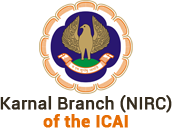Capital gains
According to the 1961 Income Tax Act, capital gains are derived according to the transfer of capital assets. Capital gain is the profit or gain of an assessee that comes from the transfer of a capital asset effected during the previous or assessment year.
Capital Assets
Under section 2(14) of the 1961 Income Tax Act, a Capital Asset is defined as property of any kind held by an assessee, including property held for their business or profession. A capital asset includes all property types as well as all rights in property. It is also defined as gains on a transfer of assets where there in no cost of acquisition such as:
Assets that don’t fall under heads of capital assets
According to the 1961 Income Tax Act, some assets are not included as Capital Assets, including:
Stock and raw materials used by an assessee for their business or profession.
Movable properties such as wearing apparel, furniture, automobiles, phones, and household goods that are held by the assessee.
NOTE: Jewelry that is also a movable asset falls under heads of capital assets.
Agricultural property in India
NOTE: Agricultural land that falls under municipal limits (in an area where the population exceeds 10,000) falls under Capital Assets. Agricultural land within 8 km of municipal limit also falls under Capital Assets if notified by the central government of India.
- A few Gold Bonds issued by the government.
- A few special bonds issued by the central government (eg Special Bearer Bonds, 1991).
Transferring Capital Assets
Under Section 2(47) of the 1961 Income Tax Act, transfer of capital assets is defined as:
- Sale, exchange and relinquishment of assets.
- Extinguishment of any rights in capital assets.
- Acquisition of capital assets or rights.
- Conversion of a capital asset by the owner as stock in trade of their business.
NOTE: This may also be a term of transfer.
- Transfer of immovable property under Section 53A of the 1882 Transfer of Property Act.
- Any transaction by which an assessee is able to act as a member of a cooperative society.
- Any transaction by which an assessee acquires shares in a cooperative society.



